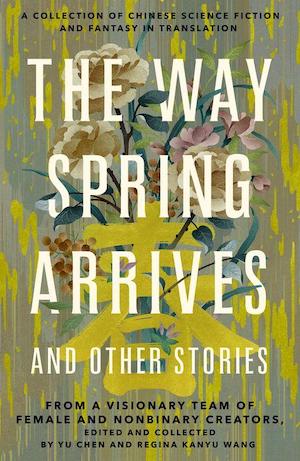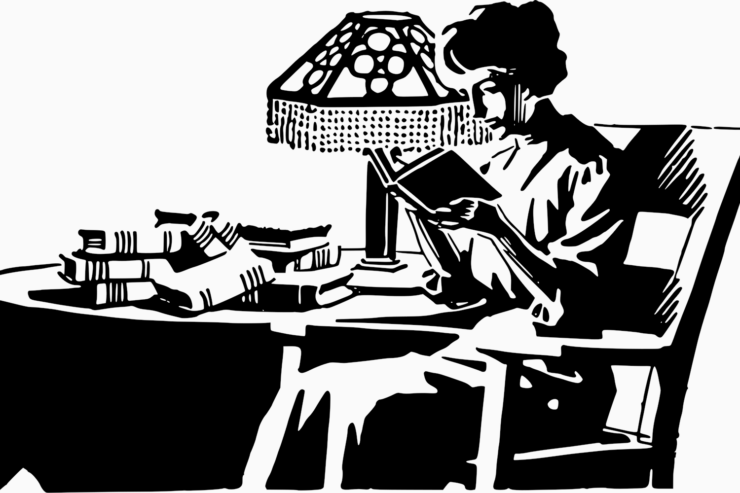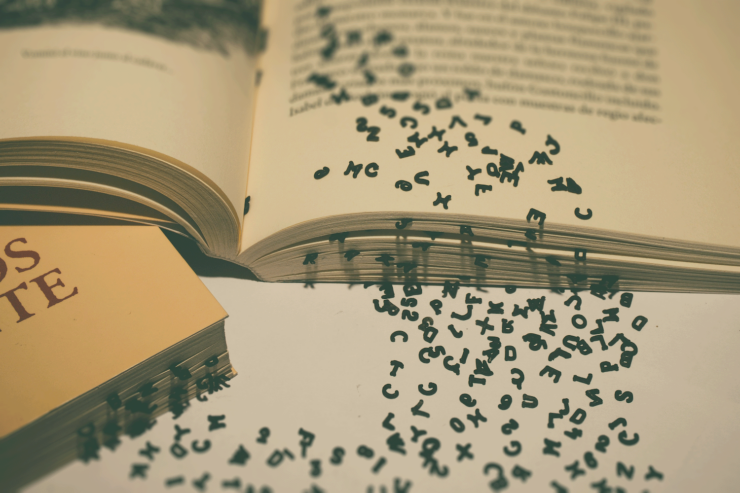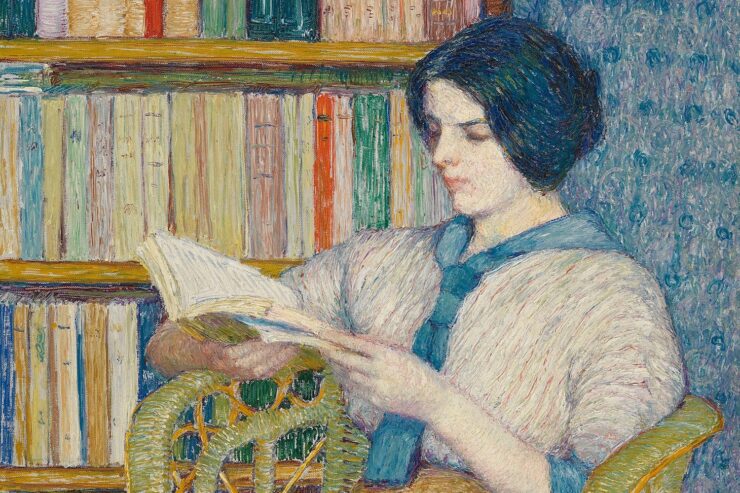Whenever someone says they like to read several books at once, my brain insists on picturing them with too many arms, extra hands grappling with slippery paperbacks, eyes racing from book to book to book. It’s not what we mean when we say that we’ve got multiple books going, though it can be what it feels like. Sometimes the gears shift easily: a chapter from a nonfiction book, a magazine or essay that catches your eye, a long dive into a novel when you have time to sit and luxuriate in it.
And sometimes the gears grind and stick and I ask, not for the first time: Is this any way to read? Why don’t I just pick a book and stick with it?
The answer is not that I’m struggling with a disappointing book and need to break up the monotony. We’re adults here, right? We do what we want. We don’t have to finish every book we start. There is great joy to be found in book abandonment: the sense of freedom, the clean slate, the pleasure of picking something new, something that promises it won’t let you down like whatever book you didn’t get through. Learning to say no is a skill, and learning to say no to a book is part of that skillset.
It’s also not that I’m trying to read faster, or get through my TBR pile with some sort of speed-reading book-switching trick. Reading isn’t a race or a contest. You read as many books as you read and you read them as fast as you read them. I’m a fast reader except when I’m not. And when I am fast, sometimes I don’t remember as much as I’d like.
So I slow down.
Sometimes with other books.
Sometimes you just can’t do this. I couldn’t read anything else while I read Appleseed, which has three storylines and is kind of like reading multiple interconnected books all in one. I refused to put down Leviathan Falls until I was done. It’s possible I refused to speak to people when I was finishing The Stone Sky. But this isn’t a judgment on my multiple-book choices as less gripping. There are as many ways to be gripped as there are stories to read.
At present I have bookmarks in Goliath, The Birthday of the World, The Bone Orchard, and a writing book I avoid talking about. (People have a lot of opinions about writing books, especially well-known old ones with slightly woo-woo vibes.) This pile of active reads is tipped too far toward fiction; one of them should be some kind of nonfiction, inasmuch as there is any kind of “should” when you’re trying to keep books from toppling off your nightstand. But I keep having to stop myself from going to Powell’s in search of the entire Long Price Quartet. I read The Atlas Six and therefore, according to my mental logic, I need to read Ninth House. The weather inches toward spring and I want to start books about the world: Arctic Dreams, The Idea of North, Finding the Mother Tree. The pile wants to grow.
The arguments for reading multiple books at once can feel a little prescriptive. It’s good for you! It gives you different feelings and lets you read multiple genres at once! Maybe it helps you retain more information when you take longer with a story! (I am still grumpy about this. I like to go fast.) It all feels very read everything you must be always reading!, which, if you were in fact the kind of kid who read the back of the cereal box, you know: always reading is not always helpful. Sometimes you wind up reading things you didn’t want to read. I can hardly seem to stop myself: If there are words in front of me, I will read them. At times it feels like word clutter. Is there a special dustrag for cleaning a few of these sentences out of my mind?
“Serial reading—the act of plowing through a single book without pausing to read anything else—seems quaint these days, and maybe impossible,” Julia Keller wrote in the Chicago Tribune in 2010. “We exist amid an extraordinary cultural cornucopia. We live in a world of joyful multitasking. There is more great literature being produced in the world today than at any other moment in history.”
I cannot get on board with “joyful” multitasking. Please, I would like to get off the multitasking merry-go-round, though I think it is too late for me. But Keller also writes about the “literary synergy … created by the accidental juxtaposition of reading materials.” Sometimes it’s not accidental; sometimes you purposefully pick up a book because it seems in conversation or contradiction with what you’re reading. A fairy tale to balance a hard science fiction novel, or a memoir for a break from fantasy. A work of classic SFF and a new book that challenges the norms once taken for granted.
Does this sound like work, that planning of reading? Maybe. If you put too much thought into it. But I would like to propose another reason for multi-book reading: It can introduce a delicious kind of yearning. I know it’s time to switch books when I start daydreaming about the one that’s not in my hands. When I’m reading a novel and look over and just have to try one short story—just one!—from the collection I started a few days ago. When I can’t stop thinking about where I’ve left a character.
Buy the Book


The Way Spring Arrives and Other Stories
The whys and wherefores of this are impossible to quantify. It has nothing to do with liking one better than the other and everything to do with that specific and indescribable feeling of itching to get back to a story, to pick up a thread, to have a sense of continuation, returning, movement. Maybe it’s a kind of ritual. I have definitely done a lot more multi-book reading in the last two years. Is it for the novelty? A self-inflicted form of spontaneity? A little.
But there is something to be said for the simple joy of giving yourself something to look forward to. That thing can be a new book, but it can also be the smaller pleasure of the place you left off in the other book you’re reading—a cliffhanging chapter sitting facedown on the desk, or a scrap of paper marking the moment an emotional scene was just too much to take in without fortification (chocolate, whiskey, more blankets, whatever works for you). Sometimes I catch myself reading a book like it’s homework (“I must finish three more chapters today before bed”) and set it aside until I can read it without giving myself an assignment.
More often than not, though, switching between books is a little bit like watching different TV series on different days. I’m not going to mix up what’s happening on Discovery with what’s happening on Severance with what’s happening on The Great. But each one informs how I see the others, even in the smallest ways, and books do that, too. The distant culture of a science fiction short story and the customs of a second-world fantasy can resonate with each other. You can trace the lineage of generation ship stories from one novel to a classic written long ago, seeing how the ideas expand and change. If one book is focused on a city’s street rats and another on its royalty, what is each author not telling you?
All of this is part of reading, whether one book or five. But reading a pile of books at once, letting the stories brush up against each other in my mind—and letting myself move from one to another on whim and habit and instinct—it’s a good change from falling headlong into one single story. It’s kind of like walking a new route through a familiar city: you know where you’re going, but the different scenery sparks a different train of thought. There’s no wrong way to read, but why not try a different path sometimes?
Molly Templeton lives and writes in Oregon, and spends as much time as possible in the woods. Sometimes she talks about books on Twitter.















Cool post! I’d never thought of all the permutations of reading more than one book at once. I first started reading multiple books/works as an English major and soon got used to it. If I do that now, there’s a non-fiction book I want to read but not necessarily at meals (I’ve started rereading Vol. 3 of Hannah Arendt’s The Origins of Totalitarianism) and another book that’s lighter than the non-fiction and that I read at meals or just want to read (finishing up The Road Back and marveling at 1931 prices for gas, lodging, and food).
I learned how to read multiple novels in graduate school in literature and to hold the contents in my head for each one. I rarely read more than one now because I’m such a fast reader, but I’ll put down a book I own for a library book that was on hold and now available. I like to turn those around in 24 hours if possible. I’m still able to keep the contents in my head although I can forget what I ate for my last meal, these days.
Another English major here, with no problem tracking multiple books; in library school I astonished my classmates by continuing to read other stuff for fun on top of the required reading. But these days I don’t read as much as I used to, so I mostly limit myself to one nonfiction book and one novel, and I’ve been known to renew library books two or three times before I get to them.
On a side note I have to say I understand not naming the writing book. I can think of three well-known, older, slightly woo-woo examples, two of which I love unreservedly and one that I hate with the fire of a thousand suns; I’m not opening that can of worms either.
Recently had an interesting intersection of two books. I was reading Nella Larsen’s novel, Passing, with an online group and realized, that the theme of passing (racial and gender) was also in Meredith Talusan’s memoir, Fairest. These two books were written almost 100 years apart.
I used to read multiple books at once, but my older brain has trouble keeping all the stories straight. Now I will read one novel at a time, interspersed with unrelated short stories if I need a break.
When I am reading, I am almost always reading more than one book (usually of several genres).
So right now I am listening to Garth Nix’s The Left-Handed Booksellers of London on my daily commute, reading Timothy Zahn’s Lesser Evil, and rereading Erle Stanley Gardener’s The Case of the Singing Skirt at night before I go to sleep.
I normally have three books on the go at any one time. One for home/bedside book, one for work (because I’m not great at mornings and would hate to leave what I’m reading at home/work) and a bathroom book, normally a compilation of journalistic works for easy reading. I’ve been doing this since early teens and frankly don’t know what I’d have done without libraries.
I usually have several going at once to. Something for work. Something long. And something that’s so good it’s not gonna last long. Maybe a reread too. And something that’s interesting but not exciting to relax with before sleep.
Over the course of the past 6-7 years, I’ve always had two books going at the same time: one physical, one eBook (the later by way of the Kindle app on my smartphone).
I further break this up by way of genre. Recently, the physical book has been Fantasy, while the eBook has been Sci-Fi. The opposite has been the case in the past.
But the bottom line here is that when I have two genres split between two different mediums… it’s not at all hard to have two books in my reading queue at the same time.
I’m starting to have a very serious problem. I’ve been reading multiple books at once for years, but now books I want to read come out so much faster than I can read them that my home is becoming literally buried in books.
I have like 50 books stacked around my reading recliner, most of them from the public library. Scifi, non-fiction, reference books, art books, YA novels, it’s all there in piles. Battles that Changed History, Battles that Changed the Galaxy, Pretties, Silver Stars, The Bible, The Big Book of Religion, Quantum Physics Simplified, Climate Change Simplified, Astronomy Simplified, Heretics of Dune, Ghost in the Shell, Mobile Suit Gundam Vol V, Guardiants of the Galaxy…
I have hundreds of books on my shelves I haven’t read, probably 50 at a time from the public library (some on shelves, some on the floor, some stacked around my recliner). I’m a very, very, VERY slow reader and I can’t keep up. I’m also addicted to art and making-of books. What do I do???
Oh yeah, and I constantly hit the 15 audiobook limit for checkout at the library, and listen to audiobooks on double speed.
In Milorad Pavic’s Dictionary of the Khazars, reading multiple books at the same time was described as reading “polygamously”…
I read at least 3 books at once. I must end on a chapter, however…. and maybe I have more than that with Audible going too… I try to read a chapter in each book a night, and I tend to think its like watching different TV shows.
I tend to separate my books by location-living room, bedroom, upstairs bathroom, downstairs bathroom. When folks ask me how do you keep it all straight? I ask them if they’ve ever been in a bar showing multiple sportsball games on tv. Then I ask them if they get confused about which game they’re watching.
I’ll switch out books if I feel like I’m too many steps ahead of the author in terms of plot.
I appreciated the comments by everyone. I don’t feel alone reading more than one or two or four books at the same time. What I read is MG/YA for my own writing reference, assorted sci-fi genres, thrillers, then for dessert I read articles daily in assorted magazines. My interests are varied, like my music and tv watching creating a challenge as to when to say no to something. Good luck to all and may the bibliotek gods smile on us all.
Really enjoy your reflections. I like to read several books in the same time period. Especially if one is considerably longer … or weightier … than the others. Also, I keep some anthologies on my Kindle and read those when I am in public transit. (Unless there is interesting scenery out the window, or I am driving.
I’ve been reading multiple books simultaneously for years–an audiobook in the car, a bedtime audiobook that doesn’t require a whole lot of thought and is simply entertaining, another audiobook loaded to accompany my daily 3 mile walk, an ebook on my ereader for waiting in places with too much ambient noise for audio, a review assignment that can squeeze out others either in print or audio, possibly a juvenile that I am sharing with one of my grandkids. Then there’s lots of professional reading and keeping up with current events–print sources and never tv. Review assignments jump to the front of my available time. The only ones that don’t require much of my attention, are the bedtime books, usually a cozy mystery, a humorous fantasy or scifi–and often the most fun of all, although I have a real affinity of adventure and mystery in any genre. The car books also tend to be light weight, frequently nonfiction. The books I listen to on my walks are often the most serious and can take over other listening or reading time, although digital books on my reader can jump into that priority space. I keep track of my reading on GoodReads, but never in some sort of race or contest. Each book takes the time and attention it deserves, and I appreciate each minute I spend reading or listening. I cannot imagine limiting myself to a single format or genre.
I have been known to read several books at a time, but more recently it’s been more likely to be reading 1 series interspersed by either smaller standalone books or other series. Most recently, I read through the whole of Katherine Kerr’s Deverry series, interspersed with two of Katherine Kurtz’s series (Deryni and Adept) – while also reading some other smaller stand-alone books: some older Pohl, Rankin, Silverberg, Lawton, and towards the end also starting book 1 of the Gap series, currently up to no 4. Deverry is done, as is Adept, but Deryni continues with Gap and other stand alones keep popping in.
If I read two books at the same time, they usually need to be fairly different so things don’t get confused. So one SF & one Fantasy will work, but even easier is to toss in something totally different. I’ve got a stack of Tom Sharpe humour that I picked up second hand, and for a very light read, toss in Horrible Histories. No plot mixups are likely. Whereas the medieval, Celtic settings of the Deverry and Deryni series have resonances at times – different enough to not get confused, but close enough to mix by reading bits of two books at once.
I’ve realized that I read more precisely because I’ll pick up a new book at any time. I never feel the requirement to finish a book before I start another, and I’ll start far more books than I’ll ever finish. But I never feel stuck on… an assignment. And maybe I would finish more if I determinedly plowed to the end of every book, but I would read less.
I’m a professional book translator, so I’m always ‘reading’ the book I’m currently translating. For fun I always read one fiction book at a time. I never read two fiction books at the same time. For the upstairs bathroom I usually have a book with very short non-fiction articles or newspaper columns.
I always equate my habit of reading many books at a time with the fact that my parents split up when I was 3. Not like a bad divorce thing (they split amicably) but because I moved between their places and half the time I would forget to bring the book I was reading. So I would have a book at mom’s and a book at dad’s. Except then I would bring the book from mom’s to dad’s one time and forget it there so then I had 2 at dad’s and a new one to start at mom’s. Rinse and repeat, I’m sometimes in the middle of 6+ books at once and I’ve never felt confused about the storylines. Since I’ve become an adult and moved out on my own I’ve kept the habit and can’t imagine focusing on only one book at a time. Being able to focus on a single thing for that long and being in the mood for the same book every day sounds fake haha definitely not something I can do.
“The answer is not that I’m struggling with a disappointing book and need to break up the monotony”
For me, I think it actually is. I’ve been trying to read fewer books at a time for the past year or so, because I feel like having a lot going was impacting my memory and enjoyment of the books, and I’ve been rediscovering the joy of total immersion, a book so amazing, you *can’t* put it down and start another. And it’s *awesome*. If you’re not getting that at least some of the time, I think something’s not working.
I DNF a lot more now because a book isn’t truly holding my attention and I think that’s how it should be. (For me personally, of course.)
As a kid I only had a few books, and it was so much easier to find continuous time slots to read in. I could happily fit a book into a day, or even over a weekend. And yes, I read shampoo bottles and cereal boxes.
As a grown up, however, my time has become slotted. Even before kids, but more obvious since them, I only have twenty minute slots, or perhaps an hour before bed, sometimes the length of a play date, and if I am lucky, a weekend. As I skip from slot to slot, I find myself in different frames of mind so I don’t always want to read the thing that I had in my hands last. So I pick up the book that fits my state of energy and being, and I have various options in various states of being finished around me, because I also have a life.